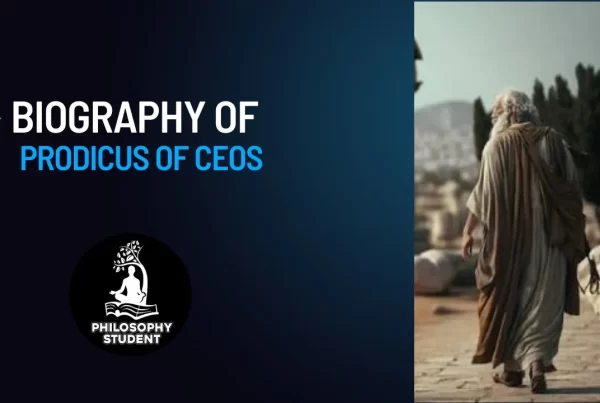There is no substitute for grappling primary sources. Nevertheless, secondary sources—including scholarly research, literary reviews, historical summaries—are valuable tools. They not only show you how you can begin thinking about a philosopher, theory, problem, or concept, but also how the reading process works. Here, you’ll find a list of textbooks commonly found in Introduction to Philosophy courses. These texts focus heavily on the Western tradition (though among the Ancient Greeks were, technically, also African and Middle Eastern thinkers), though there are myriad non-Western thinkers of great interest to philosophy students.
Introductory Texts: History of Philosophy
The books in this list have stood the test of time. Most come in both paper and digital formats, and publishers often provide accompanying digital materials, such as study guides. In addition, school and public libraries often carry copies, and some are available to rent through online businesses.
Donald Abel, Fifty Readings in Philosophy (McGraw-Hill Education)
Abel presents excerpts from classic philosophical texts, organized topically. Readings range from Plato to Mary Wollstonecraft and are edited to home in on complete arguments.
Nicholas Bunnin and Eric Tsui-James, eds., The Blackwell Companion to Philosophy (Wiley & Sons)
This anthology includes readings ranging from aesthetics to philosophy of biology, and from Plato to Derrida. The articles are written by leading scholars in their areas.
Stephen M. Cahn, Exploring Philosophy (Oxford University Press)
From classic to contemporary readings, Cahn’s comprehensive anthology includes essays on reasoning, identity, and social justice.
Norman Melchert, The Great Conversation: A Historical Introduction to Philosophy (Oxford University Press)
Melchert integrates brief excerpts with exposition and discussion of major thinkers in the history of philosophy. He is careful to draw connections across that history at various points in the text, thereby providing readers with access points to conceptual threads.
Thomas Nagel, What Does it all Mean? A Very Short Introduction to Philosophy (Oxford University Press)
Nagel is an important contemporary philosopher who writes across a number of areas, including political philosophy, ethics, mind, and epistemology. What does it all mean? is one of several books devoted to general interest philosophical topics and problems.
Oxford’s “A Very Short Introduction” Series
These very slender volumes run the gamut of topics and thinkers in the history of philosophy.
John Perry, Michael Bratman, and John Martin Fischer, Introduction to Philosophy: Classical and Contemporary Readings (Oxford University Press)
The editors, well known philosophers themselves, have brought together classic and contemporary readings, organized topically. The text includes a glossary, guide to writing philosophy papers, and study questions.
Louis Pojman, Classics of Philosophy (Oxford University Press)
Pojman presents extensive excerpts from more than 40 thinkers across the history of philosophy. At over 1,200 pages of primary source material, the text provides students with a robust set of readings across topics standard in an introductory philosophy course.
James Rachels, Problems from Philosophy (McGraw-Hill)
Rachels introduces students to philosophy by way of central and perennial problems, such as the existence of God, free will, and knowledge. The slender volume is one of several introductions to “doing” philosophy.
Gideon Rosen, Alex Byrne, Joshua Cohen, Elizabeth Harman, and Seana Shiffrin, The Norton
Introduction to Philosophy (W. W. Norton & Co.)
The authors combine extensive introductory context for essays that range across topics standard in an introductory philosophy course. The anthology also includes essays commissioned specifically for undergraduates.
Jay Rosenberg, The Practice of Philosophy: Handbook for Beginners (Pearson)
A tool kit for getting started reading, writing, and discussing philosophy, Rosenberg’s slender primer can accompany required readings in introductory philosophy courses.
Routledge’s “Philosophers” Series
Introductions to thinkers across the history of philosophy, from Plato to Habermans, provide students with accessible presentations of important thinkers. These texts complement primary sources.
Routledge’s “Handbook” Series
From The Routledge Handbook of Philosophy of Animal Minds to The Routledge Handbook of Philosophy of the City, there is pretty much no topic left untouched by scholars in the field.
Samuel Enoch Stumpf and James Feiser, Philosophy: A Historical Survey with Essential Readings (McGraw-Hill)
Stumpf and Feiser also authored Socrates to Sartre and Beyond: A History of Philosophy (McGraw-Hill). This text is organized historically, and offers substantive expositions of philosophical theories and concepts. Philosophy: A Historical Survey with Essential Readings builds on this work by integrating readings with the commentary.
Intermediate and Advanced Research: Thinkers, Subject Areas,
and Topics
Alex Broadbent, Philosophy for Graduate Students: Metaphysics and Epistemology (Routledge, Taylor & Francis Group)
This text gives you some insight into the foundations of what graduate students in philosophy should bring to their studies. The author comes from the analytic tradition in philosophy, and specializes in topics in the philosophy of science. These inform the aim of the book, which is to help graduate students see a “coherent whole” in the variety of topics first discovered in undergraduate studies.
“Cambridge Companion” Series (Cambridge University Press)
From the Cambridge Companion to Socrates, to The Cambridge to Nietzsche, Cambridge “Companion” series brings together leading scholars in the history of philosophy, who contribute papers and edit volumes. Collectively, topics within volumes tend to be comprehensive, so researchers will find technical papers that cover the most ground in a single volume.
Blackwell’s “Guide to the Philosophy of …” series (Wiley & Sons)
The Blackwell guides bring together scholars working on topics ranging from the philosophy of education to the philosophy of computing. The volumes in the series provide readers with introduction to topics through overviews of the current work in the subject area.
Serious Fun
The Blackwell Philosophy and Popular Culture Series Beginning with South Park and Philosophy, Blackwell has published 40 books in the series, including The Big Bang Theory and Philosophy and Hunger Games and Philosophy. As with the other “serious fun” series and titles in this list, Blackwell’s series editor and contributors aim to teach philosophy through popular culture.
Richard Osborne (Author) and Ralph Edney (Illustrator), Philosophy for Beginners (Writers and Readers Publishing, Inc.)
Plato wrote dialogues, which invite the reader into a conversation. The informal style, the intimate tone, and the personalities of the interlocutors bring philosophical ideas alive in ways that abstract treatises most often cannot. Similarly, visual aids—in this case, illustrations —give the reader something concrete to hold onto as they read about how philosophers have asked and answered life’s most important questions.
Open Court’s “Popular Culture and Philosophy” series
The series began in 2000 with Seinfeld and Philosophy. One hundred twenty-nine books later, the series is going strong. Ranging from Deadpool and Philosophy to Mr. Rogers and Philosophy, there’s a title for pretty much every interest—and all of it contemplated through a philosophical lens.
Rowman & Littlefield’s “Philosophy and Popular Culture” series
Titles include Joss Whedon as Philosopher and The Philosophy of Christopher Nolan. Some of the books are anthologies, while others are written by a single author.
From Wonder Woman and Philosophy: The Amazonian Mystique, to Alien and Philosophy: I Infest, Therefore I Am, the Wiley series presents philosophical explorations of topics in film and television. For example, The Big Lebowski and Philosophy: Keeping Your Mind Limber with Abiding Wisdom includes essays on the nature of the good life, nihilism, and just war theory.




































